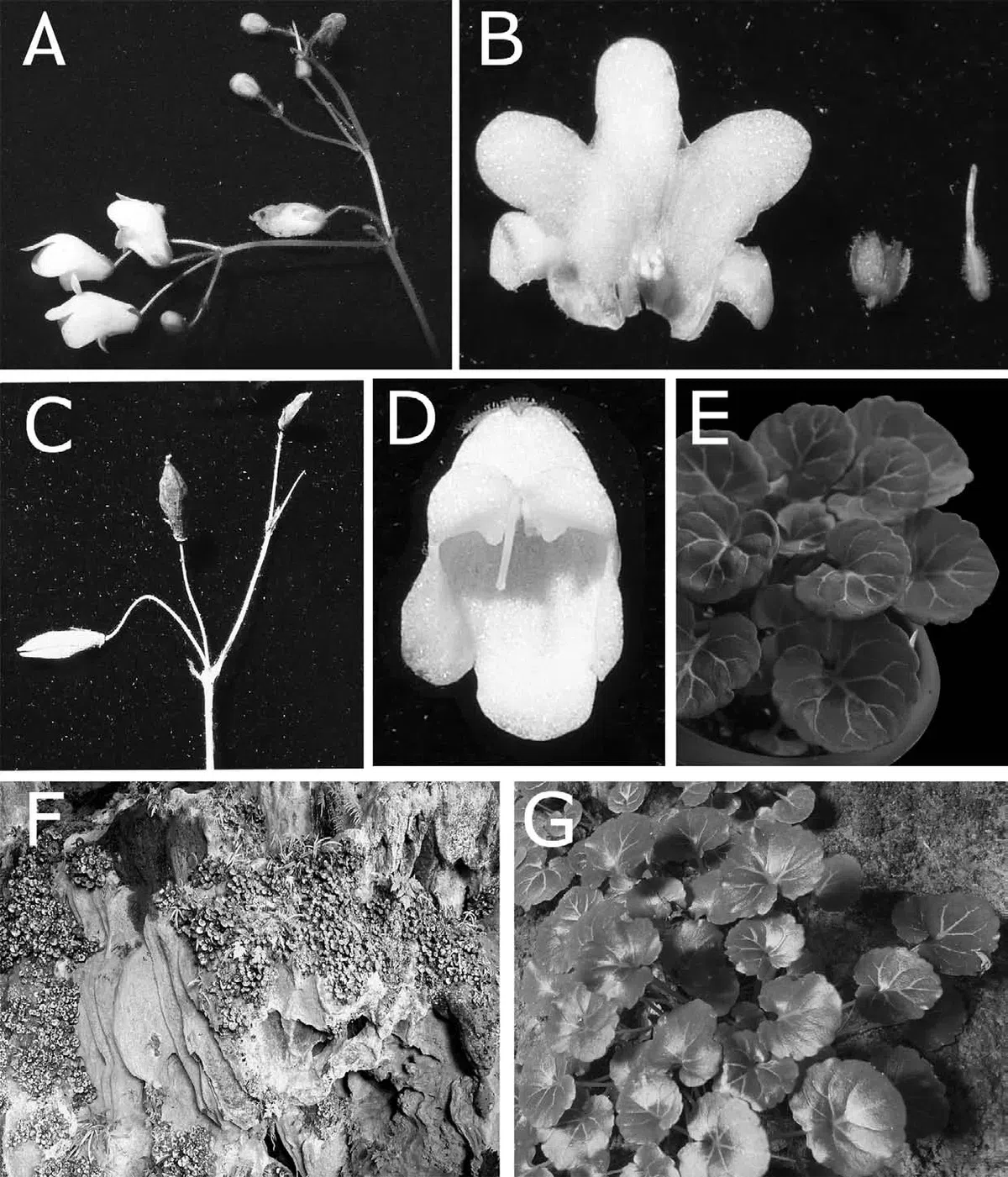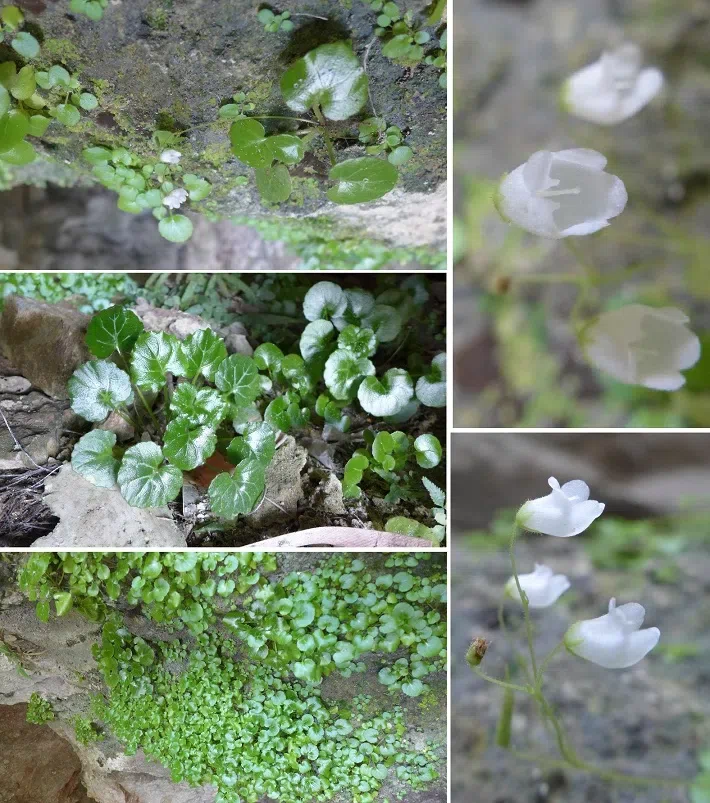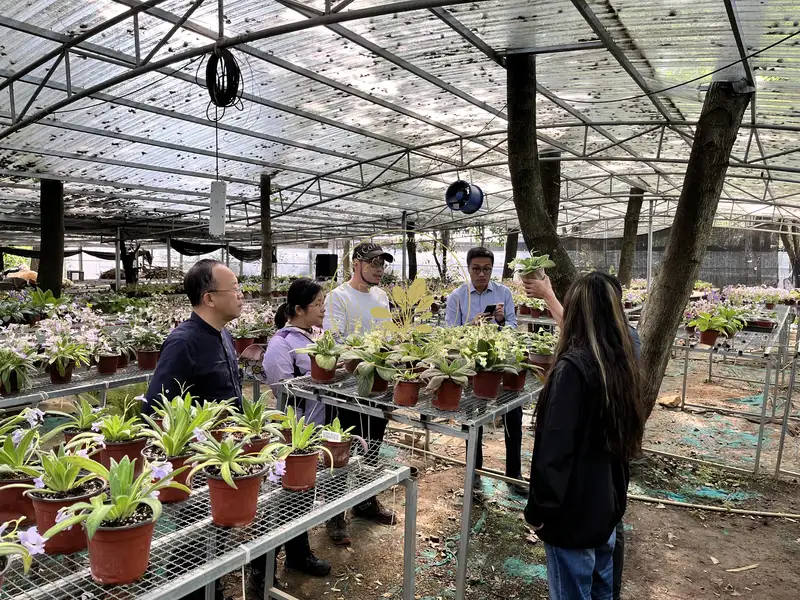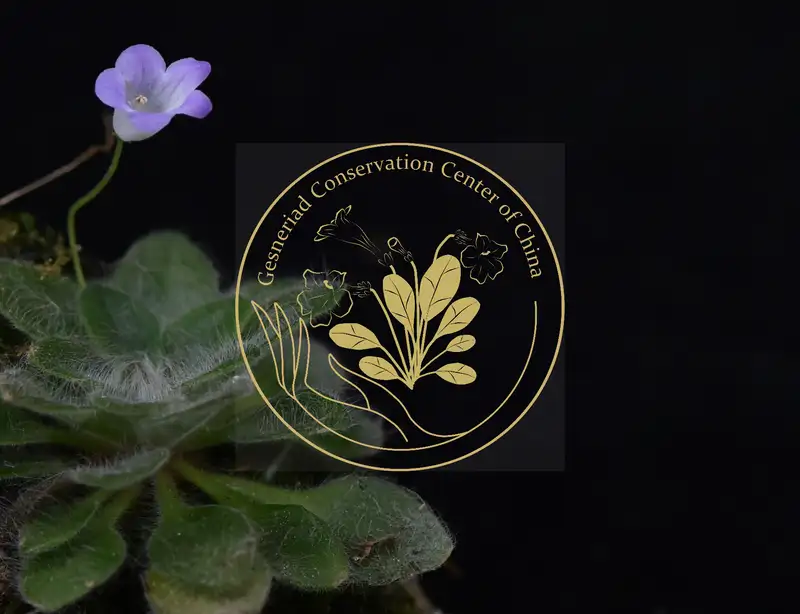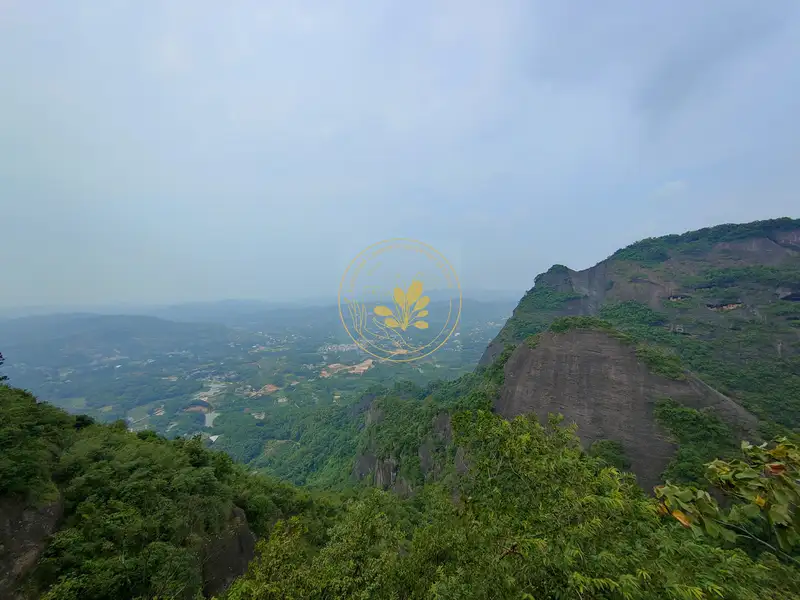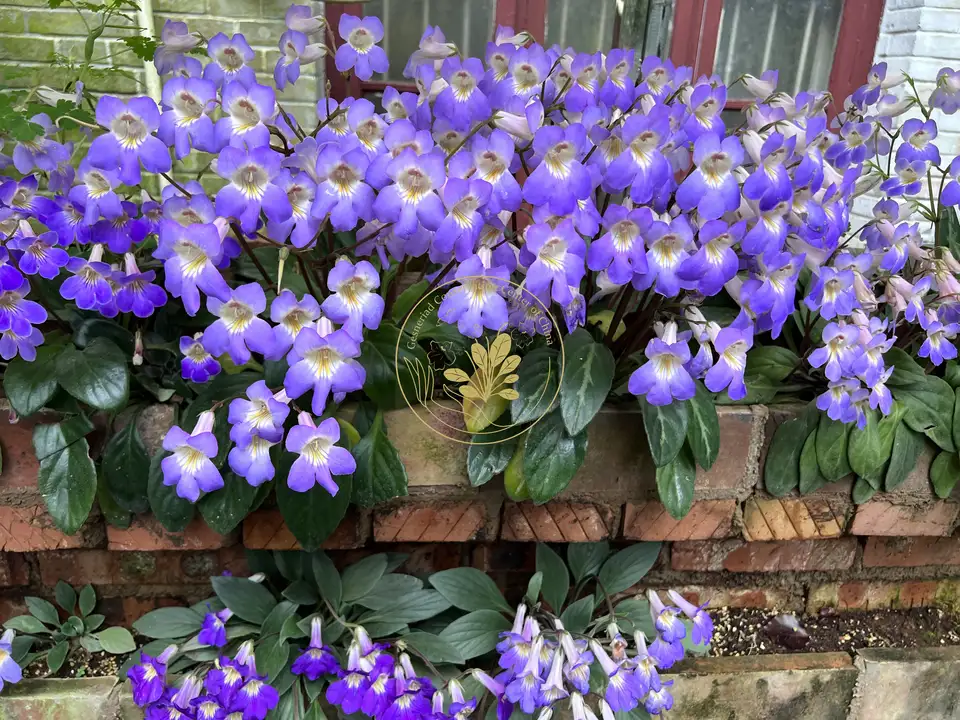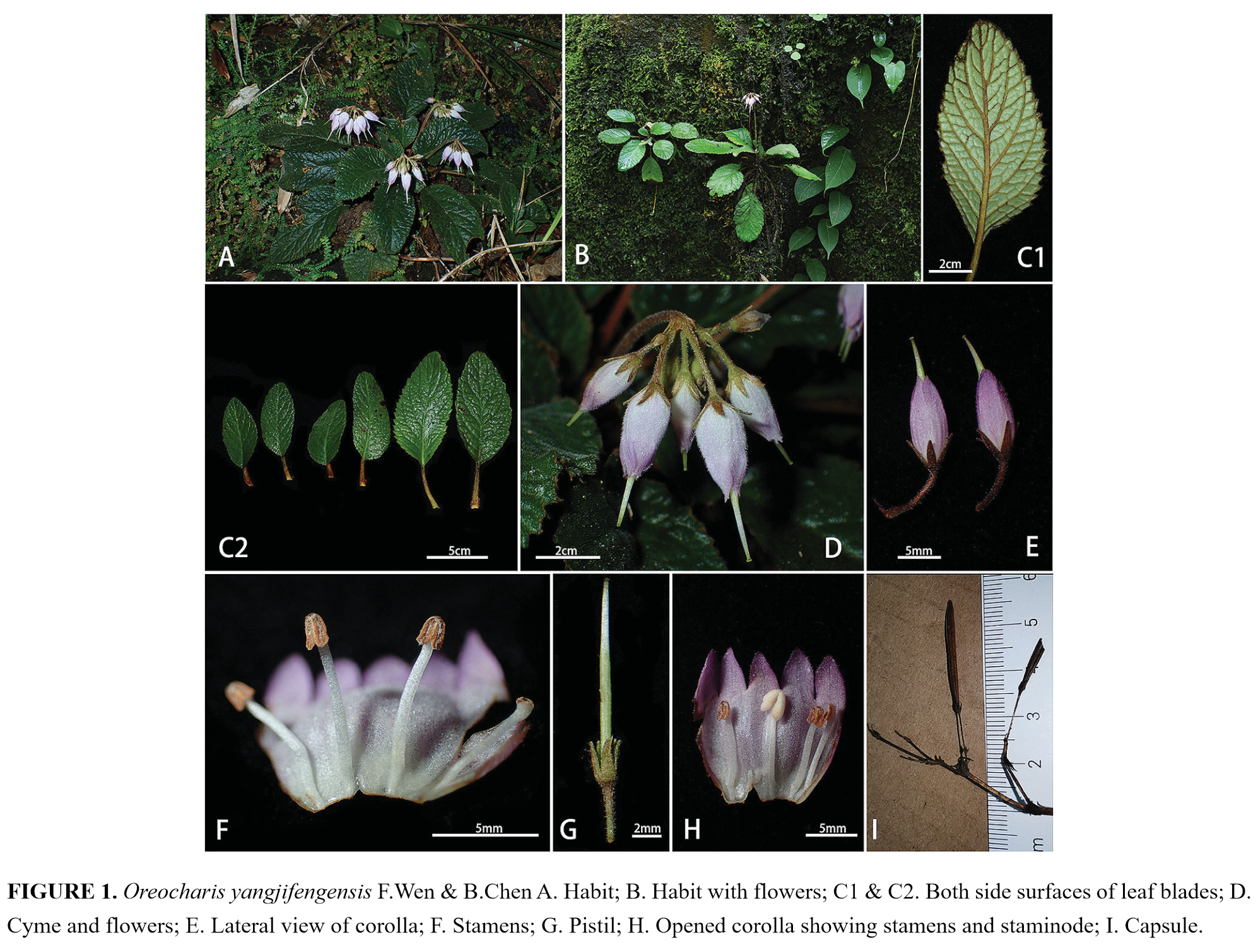No. 1 Neng Jiang & Hong Li: Primulina debaoensis sp. nov. (Gesneriaceae) from a limestone cave in Guangxi, China
Nordic Journal of Botany 31: 631–634.
ABSTRACTA new species of Gesneriaceae, Primulina debaoensis Neng Jiang & Hong Li, from Guangxi Zhuangzu Autonomous Region, China, is illustrated and described here. It resembles another endemic and stenochoric species in Guangxi, P. pungentisepala (W.T. Wang) Mich. Möller & A. Weber, but differs by having 12–18 or more leaves, leaf blade being broadly linear, oblanceolate-elliptical or oblanceolate, bracts being ovate or elliptical with silvery or argenteous nerves and by having a yellow ovary that is 4–5 mm long and sparsely white pubescent.
No. 2 Hui-Ling Liang, De-Xin Kong, Yan-Cai Shi, Bo Zhao & Fang Wen: Primulina tsoongii sp. nov. (Gesneriaceae) from a limestone area in north Guangxi, China. No. 3 Wen-Hong Chen, Hong Wang, Yu-Min Shui, Michael M?ller & Zhi-Yong Yu: Oreocharis jingpingensis (Gesneriaceae), a new species from Yunnan, China. Ann. Bot. Fennici 50: 312–316. Primulina huaijiensis Z.L. Ning & J. Wang sp. nova (Gesneriaceae) from Guangdong, China is described and illustrated. It is similar to P. renifolia, but differs from P. renifolia in several morphological characters, both vegetative and reproductive as well as in having a different flowering period (October–December). FIGURE 2. Primulina huaijiensis. — A: Flowers. — B: Flower opened showing stamens. — C: Capsules. — D: Flower face view. — E: Plant. — F and G: Habit. Above-mentioned figure was cited from Ning et al., 2013. Where can you get this paper or available information? Please email to corresponding author. 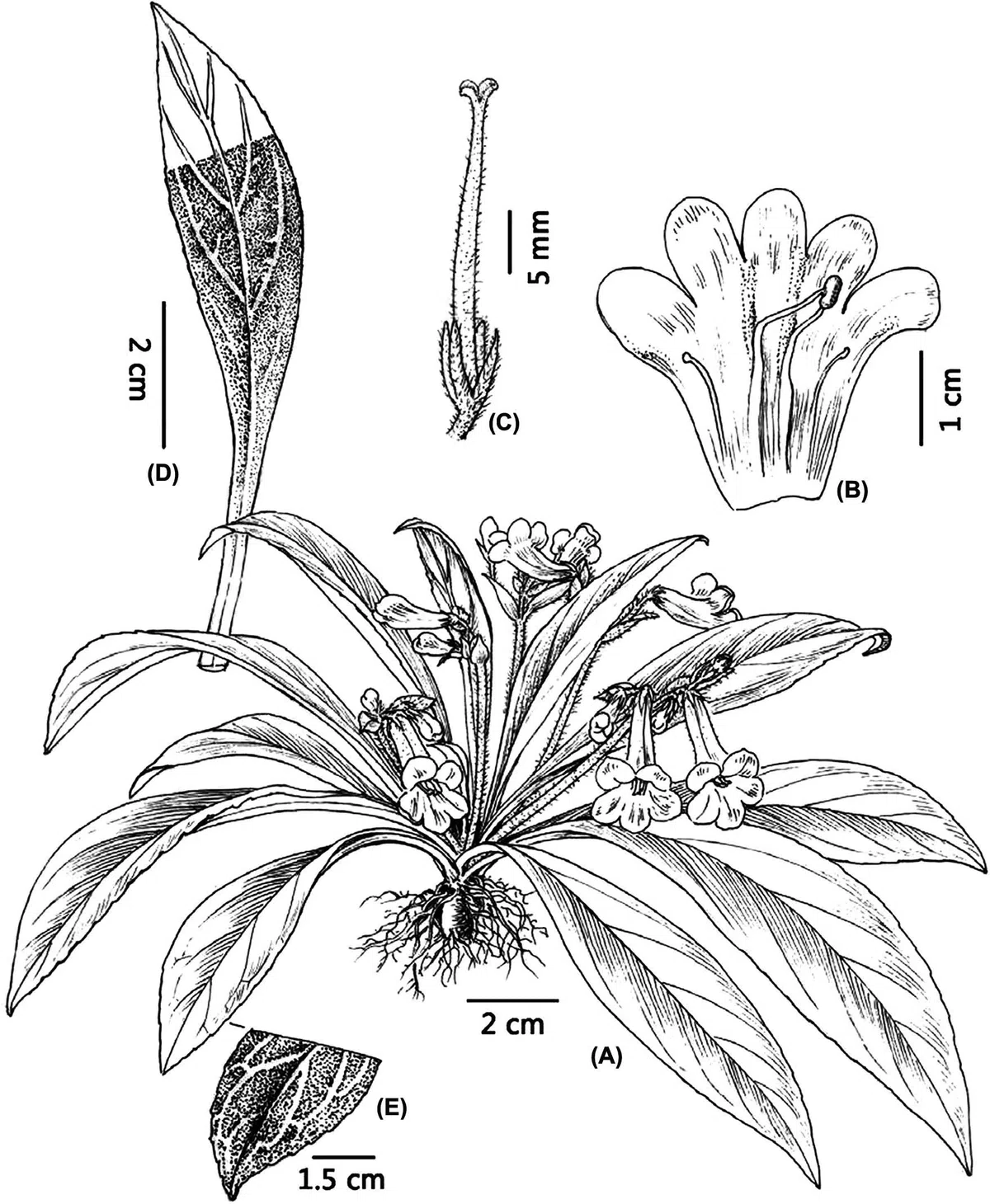
FIGURE 1. Primulina debaoensis sp. nov. (A) habit, (B) corolla opened with stamens and staminodes, (C) calyx and pistil, (D) leaf for showing silver-grey variegation, (E) leaf blade for showing margin, texture and alignment of nerves. Drawn from holotype by W. H. Lin.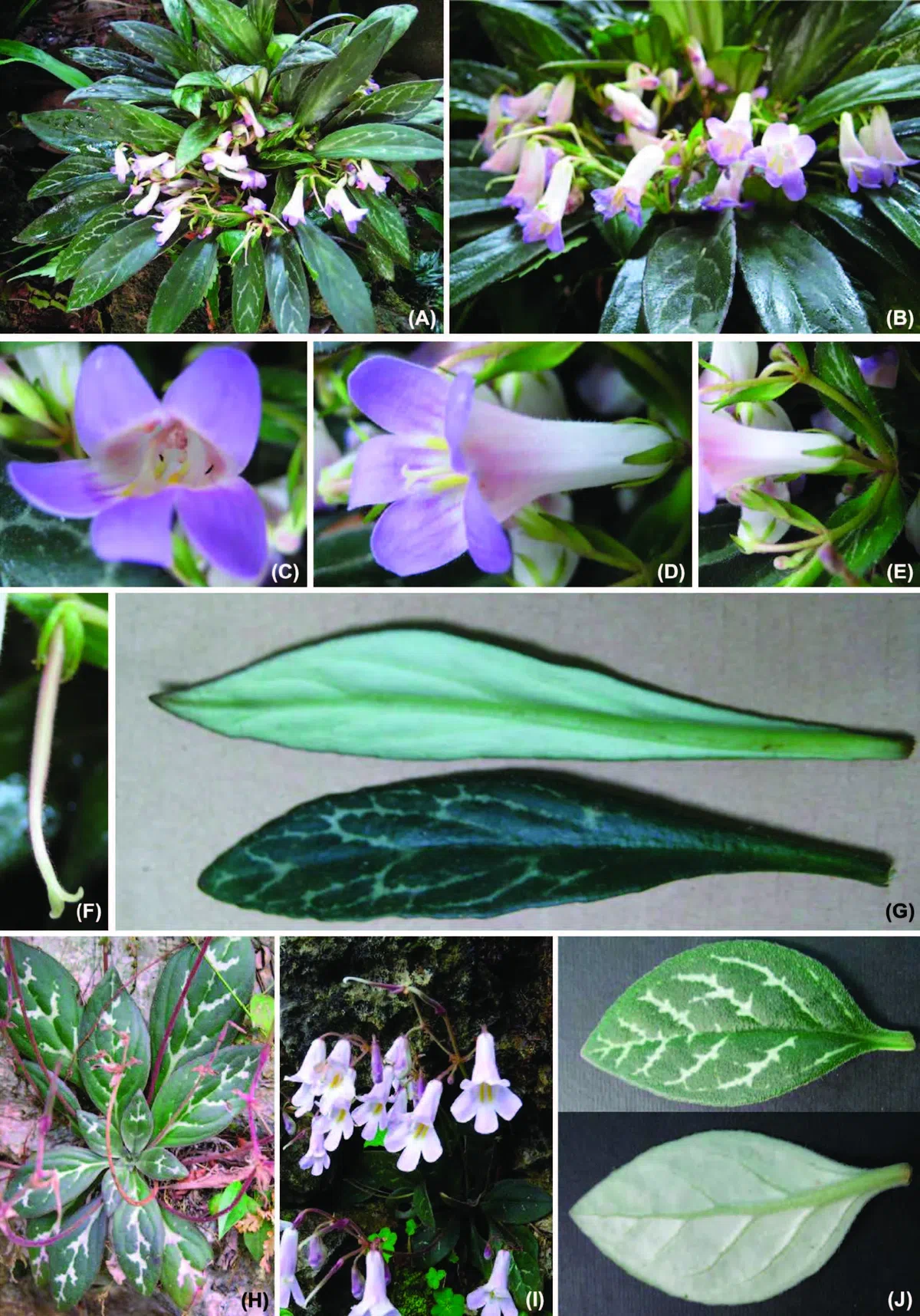
FIGURE 2. (A)–(G) Primulina debaoensis sp. nov. (A) habit, (B) cymes, (C) face view of corolla, (D) top view of corolla, (E) bracts, bracteoles and pedicles, (F) pistil, (G) abaxial and adaxial surfaces of leaf. (H)–(J) P. pungentisepala (W. T. Wang) Mich. Möller & A. Weber. (H) habit, (I) cymes and flowers, (J) abaxial and adaxial surfaces of leaf.; C = 1 cm; D–F = 5 mm.
Above-mentioned figure was cited from Jiang & Li, 2013.
Nordic Journal of Botany 32: 75–79
ABSTRACTPrimulina tsoongii sp. nov. (Gesneriaceae) is described and illustrated here. Th is new species resembles P. hochiensis and P. hochiensis var. rosulata , but is easily distinguished by its sparsely hirsute mature leaves, narrow bracts (only 0.4 – 0.5 in diameter) and undivided yellowish ligulate stigma with dense elongate papillae.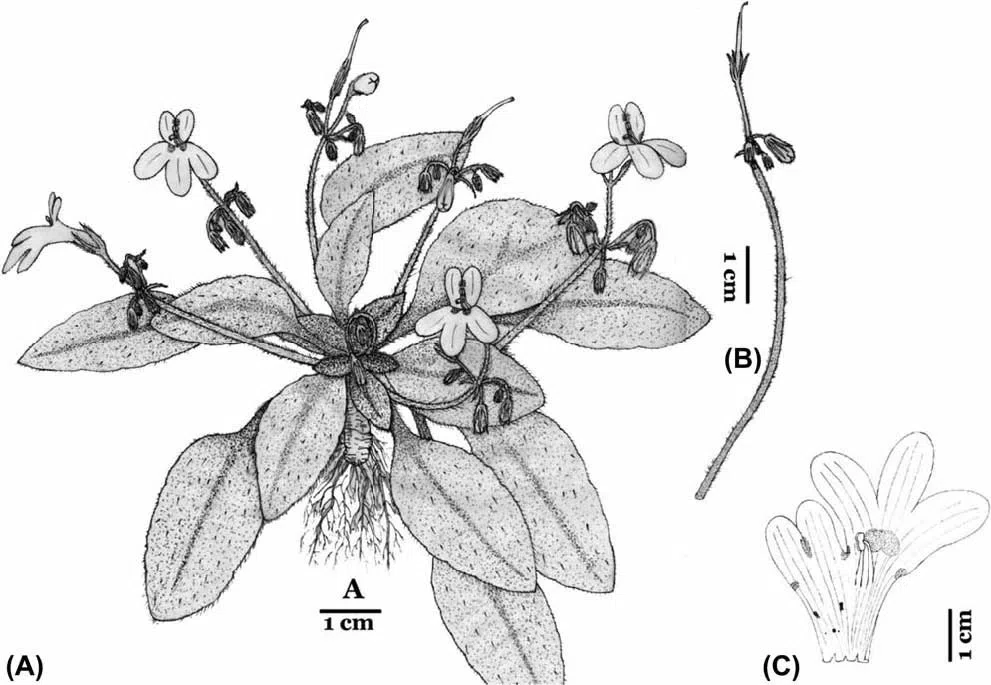
FIGURE 1. Primulina tsoongii sp. nov. (A) habit, (B) cyme, buds and pistil, (C) opened corolla exposing stamens and staminodes. From the holotype, Hui-Ling Liang, Yan-Cai Shi and De-Xin Kong, 120711 (IBK).
Above-mentioned figure was cited from Liang et al., 2013.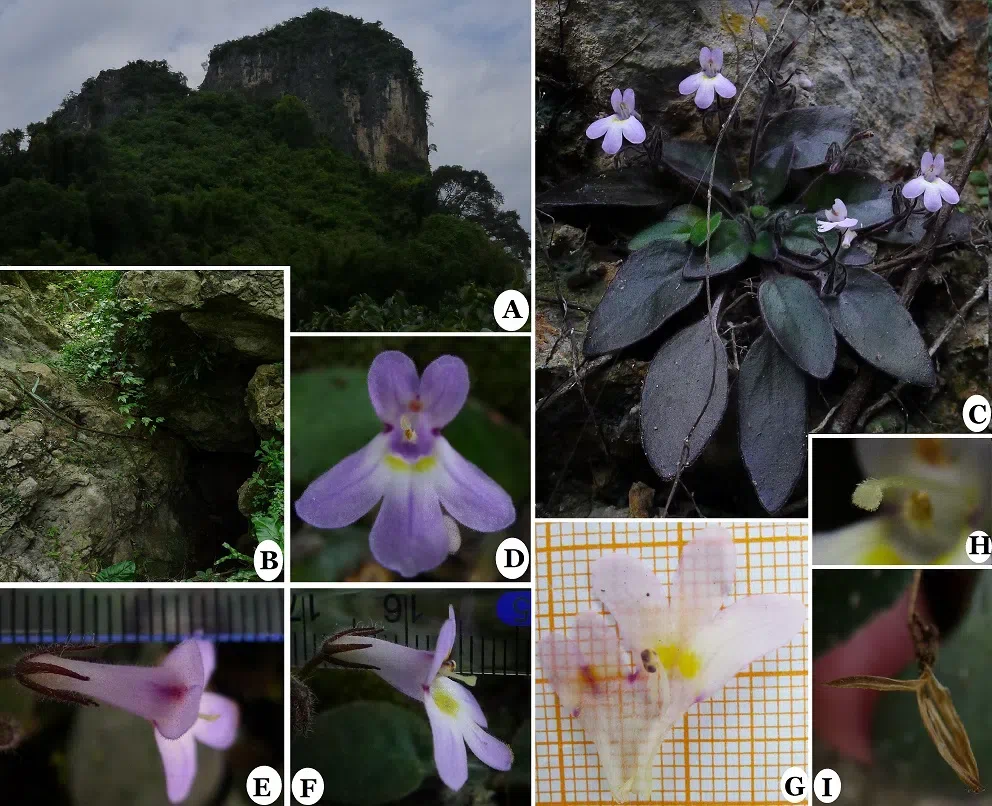
FIGURE 2. Primulina tsoongii sp. nov. (A) type locality, (B) habitat, (C) habit, (D) frontal view of corolla, (E) top view of corolla,
(F) lateral view of corolla, (G) opened corolla, (H) stigma, (I) capsule.
Above-mentioned figure was cited from Liang et al., 2013.
ABSTRACT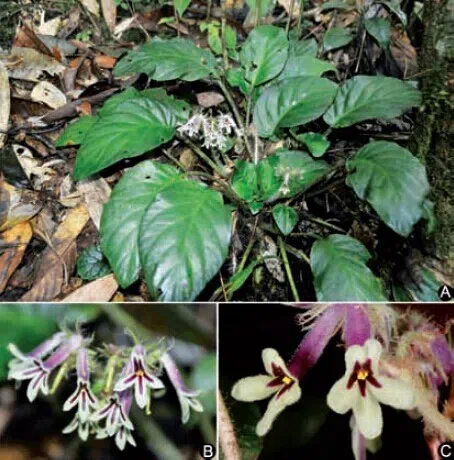
FIGURE 1. Oreocharis jinpingensis in the field (all from the holotype A and B photographed by Zhi-Yong Yu, C by Yu-Min Shui). -A: Plant. -B: Inflorescence. -C: Face view of corolla.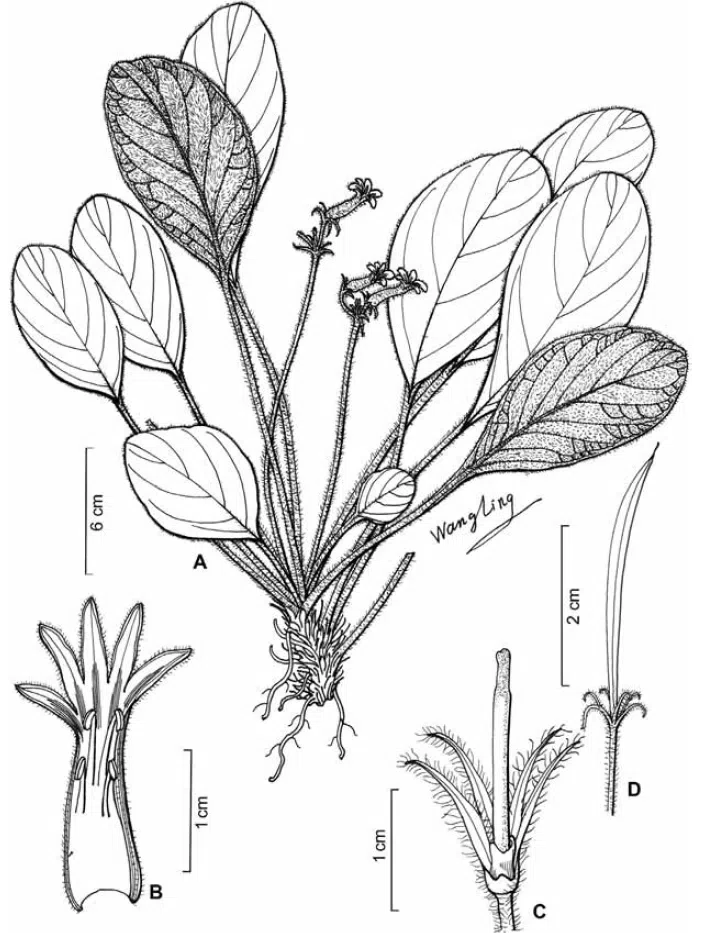
FIGURE 2. Oreocharis jinpingensis (A-C from holotype, D from Y.M. Shui et al 90996, drawn by Ling Wang) -A: Plant. -B: Opened corolla. -C: Calyx, ovary and disc. D: Dry fruit.
Above-mentioned figure was cited from Chen et al., 2013.
No. 4 Zu-Lin Ning, Guo-Feng Li, Jing Wang, James F. Smith, Hiobiarilant Rasolonjatovo & Ming Kang: Primulina huaijiensis (Gesneriaceae), a new species from Guangdong, China.
Ann. Bot. Fennici 50: 119–122
ABSTRACT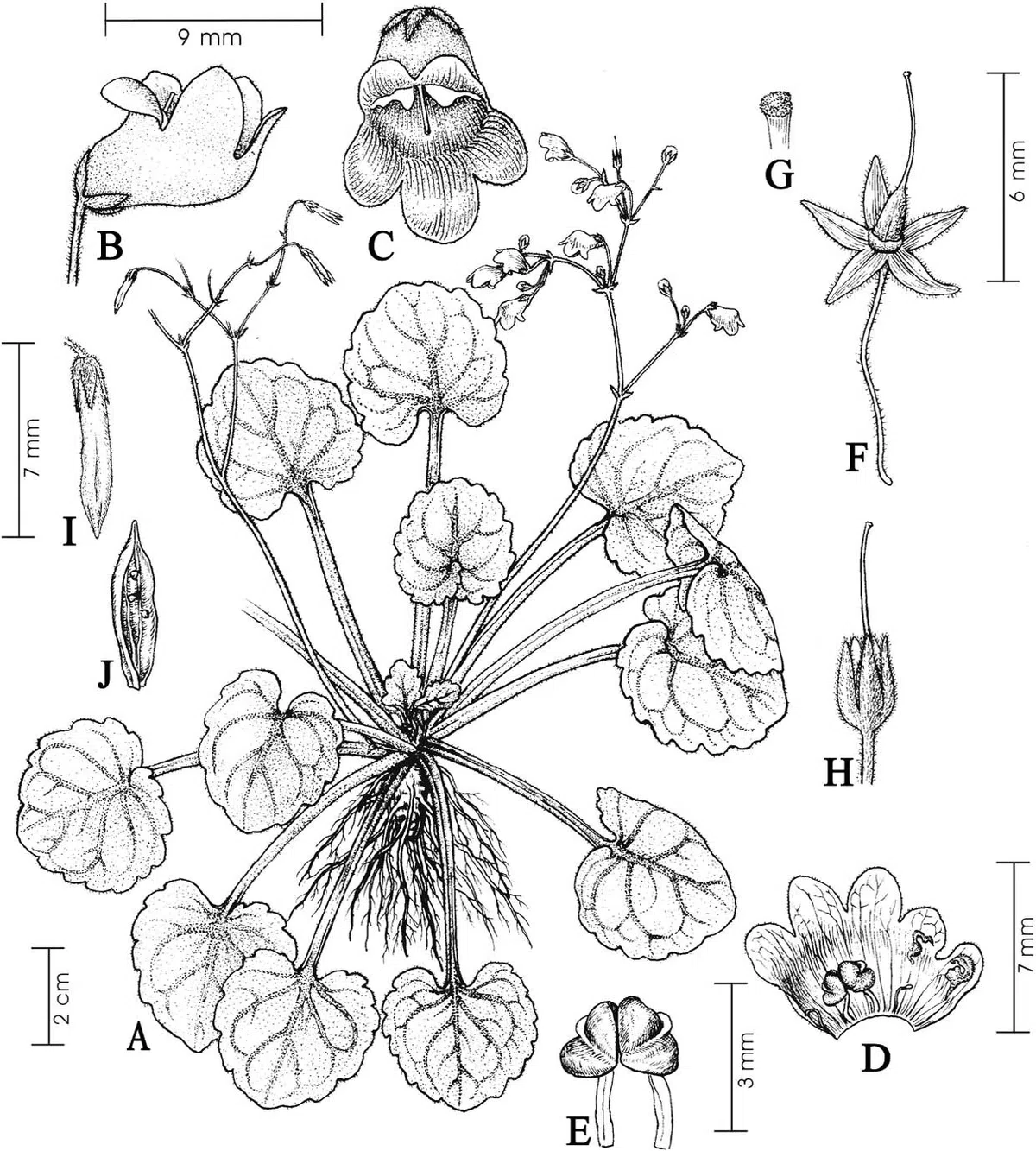
FIGURE 1. Primulina huaijiensis (from the holotype, drawn by Yun-Xiao Liu). — A: Habit. — B and C: Corolla. — D: Corolla opened, with stamens and staminodes. — E: Stamens. — F and H: Calyx and pistil. — G: Stigma. — I and J: Capsule.